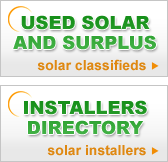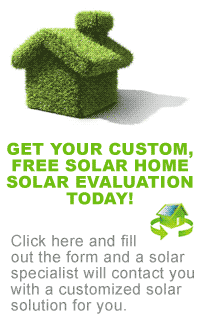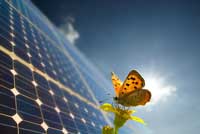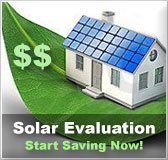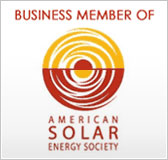Solar Green Mountain Power:
-Customers of Solar Green Mountain Power who own net-metered photovoltaic
systems are eligible to receive a bonus payment equal to $0.06 per
kilowatt hour generated by the customer owned system.
-Green Mountain Power will reimburse the customer for the expenses
of the additional meter up to $300.
-All renewable energy credits generated by the customer owned system
will belong to the customer not the utility.
Property tax exemption:
-The total value added to a home by a renewable energy system may
be exempt from property taxes.
-Systems and technologies that are eligible for this exemption are
solar, wind, biomass, hydroelectric, combined heat and power/cogeneration,
fuel cells, renewable fuels and anaerobic digestion.
Clean energy finance districts:
-This is a property tax financing authorization incentive that allows
property owners to borrow money to pay for energy efficiency improvements.
-The amount borrowed is paid back through a property tax assessment
which is increased for a certain amount of years until all the funds
are paid.
Renewable energy systems sales tax exemption:
-In Vermont, renewable energy systems up to 250 kilowatts in capacity
are eligible to be 100% sales tax exempted.
-Micro-combined heat and power systems up to 20 kilowatts are tax
exempt.
-The exemption is offered for both grid-tied and off-grid systems.
Clean energy development fund grant & loan programs:
-The clean energy development fund has a loan and grant program both
designed to promote the development of clean electric-energy technologies
by providing funding for purchasing land and buildings, purchasing
and installing machinery and equipment, and working capital.
-Loans have a fixed interest rate of 2%. The minimum loan amount is
$50,000 and the maximum amount is $1,000,000.
-Grant amounts vary by solicitation.
-Grants are available to four project categories; re-project financial
assistance, small-scale systems, large-scale systems and special demonstration
projects.
-Eligible clean electric-energy technologies and systems include solar,
wind, biomass, fuel cells and combined heat and power.
Efficiency Vermont – home performance with Energy Star:
-This program provides homeowners with financial incentives for energy
efficiency projects.
-The rebate amount for qualifying systems is one third of the installed
system cost up to $2,500.
-Projects must be pre-approved by Efficiency Vermont before the installation
to be eligible.
Vermont small-scale renewable energy incentive program:
-This program provides funding for new solar, wind and micro-hydro
energy system installations.
-Systems must be installed by Vermont Solar and Wind Partners to qualify.
-Incentive amounts for residential photovoltaic and solar hot water
systems are $1.75 per watt up to $8,750.
-Incentive amounts for residential small wind systems are $2.50 per
watt DC up to $12,500.
-Incentive amounts for residential micro-hydro systems are $1.75 per
3 ft-gal/min. up to $8,750.
Net metering:
-Net metering is offered to residents in Vermont who own grid-tied
systems up to 250 kilowatts in capacity that generate electricity
using eligible renewable energy resources, and to micro-combined heat
and power systems up to 20 kW.
-The net excess generation is credited to the customer's next bill
at retail rate.
-At the end of 12 months, all unused net excess generation credits
will revert to the utility without any compensation to the customer.
Residential renewable energy tax credit:
-This personal tax credit allows the taxpayer to claim a credit of
30% of expenditures including labor costs and installation of qualified
residential solar-electric systems, solar water heating systems or
fuel cells. Small wind-energy systems and geothermal heat pumps can
also be accredited for.
-Solar-electric systems and solar water heaters have a maximum incentive
of $2,000 if placed in service before 2009. There is no maximum incentive
for systems placed after 2008.
-The excess amount of the federal tax credit may be carried forward
to the next taxable year if it exceeds tax liability.
-This can be carried forward until 2016, but after that, it is unknown
if the unused credit will be able to be forwarded.
Residential energy conservation subsidy exclusion:
-This is a personal exemption of 100% of energy conservation subsidies
provided by public utilities.
-The value of a purchase or installation of any energy conservation
measure by a customer such as solar water heat, solar space heat or
photovoltaics will not be included in the customer’s gross income.
-Customers of an electric utility company, who participate in the
utility’s energy conservation program, may receive a rate reduction
of electricity furnished or a nonrefundable credit against the purchase
price of the electricity on each monthly electric bill.
Energy-efficient mortgages:
-This is a federal loan program where homeowners can use EEM (energy-efficient
mortgages) to finance renewable energy technologies in a home.

